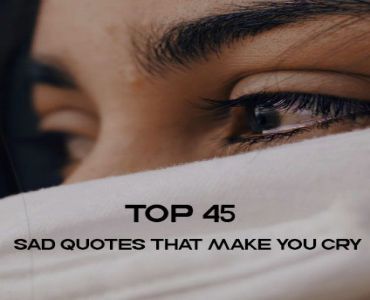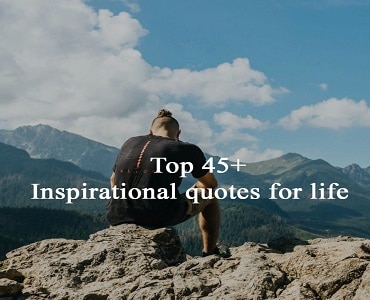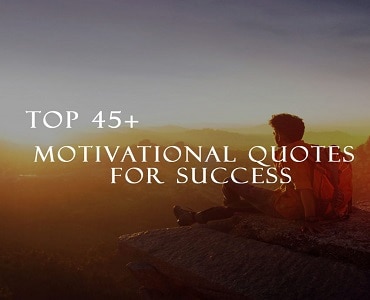Who is Sonia Sotomayor
Nominated by President Barack Obama on May 26, 2009, Sonia Sotomayor became the first Latina Supreme Court Justice in U.S. history.
Sonia Sotomayor became a U.S. District Court Judge in 1992 and was elevated to the U.S. Second Circuit Court of Appeals in 1998. In 2009, she was confirmed as the first Latina Supreme Court justice in U.S. history.
Federal judge Sotomayor was born as the elder of two children in the South Bronx area of New York City, on June 25, 1954. Parents Juan and Celina Baez Sotomayor, who were of Puerto Rican descent, moved to New York City to raise their children. Sotomayor’s family functioned on a very modest income – her mother was a nurse at a methadone clinic, and her father was a tool-and-die worker.
Sonia Sotomayor Quotes
1. When a young person, even a gifted one, grows up without proximate living examples of what she may aspire to become–whether lawyer, scientist, artist, or leader in any realm–her goal remains abstract. Such models as appear in books or on the news, however inspiring or revered, are ultimately too remote to be real, let alone influential. But a role model in the flesh provides more than inspiration; his or her very existence is confirmation of possibilities one may have every reason to doubt, saying, ‘Yes, someone like me can do this.
2. But experience has taught me that you cannot value dreams according to the odds of their coming true. Their real value is in stirring within us the will to aspire. That will, wherever it finally leads, does at least move you forward. And after a time you may recognize that the proper measure of success is not how much you’ve closed the distance to some far-off goal but the quality of what you’ve done today.
3. Although wisdom is built on life experiences, the mere accumulation of years guarantees nothing.
4. People who live in difficult circumstances need to know that happy endings are possible.
5. Quiet pragmatism, of course, lacks the romance of vocal militancy. But I felt myself more a mediator than a crusader. My strengths were reasoning, crafting compromises, finding the good and the good faith on both sides of an argument, and using that to build a bridge. Always, my first question was, what’s the goal? And then, who must be persuaded if it is to be accomplished? A respectful dialogue with one’s opponent almost invariably goes further than a harangue outside his or her window. If you want to change someone’s mind, you must understand what need shapes his or her opinion. To prevail, you must first listen.
6. One thing has not changed: to doubt the worth of minority students’ achievement when they succeed is really only to present another face of the prejudice that would deny them a chance to even try. It is the same prejudice that insists all those destined for success must be cast from the same mold as those who have succeeded before them, a view that experience has already proven a fallacy.
7. Good people can do bad things, make bad decisions. It doesn’t make them bad people.
8. I have come to believe that in order to thrive, a child must have at least one adult in her life who shows her unconditional love, respect, and confidence.
9. I was fifteen years old when I understood how it is that things break down: people can’t imagine someone else’s point of view.
10. You can’t say: This much love is worth this much misery. They’re not opposites that cancel each other out; they’re both true at the same time.
11. If you held to principle so passionately, so inflexibly, indifferent in the particulars of circumstance – the full range of what human beings, with all their flaws and foibles, might endure or create – if you enthroned principle above even reason, weren’t you then abdicating the responsibilities of a thinking person?
12. Sometimes, even if there was no useful advice to give, I saw that listening still helped.
13. As you discover what strength you can draw from your community in this world from which it stands apart, look outward as well as inward. Build bridges instead of walls.
14. Don’t mistake politeness for lack of strength.
15. Dressing badly has been a refuge much of my life, a way of compelling others to engage with my mind, not my physical presence.
16. Many of the gaps in my knowledge and understanding were simply limits of class and cultural background, not lack of aptitude or application as I feared.
17. I war running back to the house in Mayaguez with a melting ice cone we called a piraqua running sweet and sticky down my face and arms, the sun in my eyes, breaking through clouds and glinting off the rain-soaked pavement and dripping leaves. I was running with joy, an overwhelming joy that arose simply from gratitude for the fact of being alive. Along with the image, memory carried these words from a child’s mind through time: I am blessed. In this life I am truly blessed.
18. There are uses to adversity, and they don’t reveal themselves until tested. Whether it’s serious illness, financial hardship, or the simple constraint of parents who speak limited English, difficulty can tap unsuspected strengths. It doesn’t always, of course: I’ve seen life beat people down until they can’t get up. But I have never had to face anything that could overwhelm the native optimism and stubborn perseverance I was blessed with.
19. I felt like everyones second choice, which is why a compliment could catch me off guard.
20. Looking out at that crowd, I imagined those who had not yet arrived, minority students who, in years to come, would make this multitude of faces, the view from where I now stood, a little more various. If they could have heard me, I would have confided in them: As you discover what strength you can draw from your community in this world from which it stands apart, look outward as well as inward. Build bridges instead of walls.
21. I will be judged as a human being by what readers find here. There are hazards to openness, but they seem minor compared with the possibility that some readers may find comfort, perhaps even inspiration, from a close examination of how an ordinary person, with strengths and weaknesses like anyone else, has managed an extraordinary journey.
22. The dynamism of any diverse community depends not only on the diversity itself but on promoting a sense of belonging among those who formerly would have been considered and felt themselves outsiders.
23. I think that even someone who got into an institution through affirmative action could prove they were qualified by what they accomplished there.
24. I would warn any minority student today against the temptations of self-segregation: take support and comfort from your own group as you can, but don’t hide within it.
25. In my experience when a friend unloaded about a boyfriend or spouse, the listener soaked up the complaint and remembered it long after the speaker had forgiven the offense.
26. There is indeed something deeply wrong with a person who lacks principles, who has no moral core. There are, likewise, certainly values that brook no compromise, and I would count among them integrity, fairness, and the avoidance of cruelty. But I have never accepted the argument that principle is compromised by judging each situation on its own merits, with due appreciation of the idiosyncrasy of human motivation and fallibility.
27. The persistence or failure of human relationships cannot be predicted by any set of objective or universal criteria. We are all limited, highly imperfect beings, worthy in some dimensions, deficient in others, and if we would understand how any of our connections survive, we would do well to look first to what is good in each of us.
28. I couldn’t even tell if I had any sadness of my own, because I was so full of Abuelita’s sadness.
29. Yo tenia quince anos cuando comprendi por que fracasaban las cosas: las personas no podian imaginar el punto de vista de los demas.
30. There are no bystanders in life […] Our humanity makes us each a part of something greater than ourselves.
31. The truth is that since childhood I had cultivated an existential independence. It came from perceiving the adults around me as unreliable, and without it I felt I wouldn’t have survived. I cared deeply for everyone in my family, but in the end I depended on myself.
32. Sometimes, idealistic people are put off the whole business of networking as something tainted by flattery and the pursuit of selfish advantage. But virtue in obscurity is rewarded only in heaven. To succeed in this world, you have to be known to people.
33. Books are keys that unlock the wisdom of yesterday and open the door to tomorrow
34. Few aspects of my work in the DA’s Office were more rewarding than to see what I had learned in childhood among the Latinos of the Bronx prove to be as relevant to my success as Ivy League schooling was.
35. I’ve known how to control my anger, but that doesn’t mean I don’t feel it.
36. The challenges I have faced—among them material poverty, chronic illness, and being raised by a single mother—are not uncommon, but neither have they kept me from uncommon achievements.
37. There are things you may know in your heart for a long while without admitting them to conscious awareness, until, unexpectedly, something triggers an inescapable realization.
38. That tide of insecurity would come in and out over the years, sometimes stranding me for a while but occasionally lifting me just beyond what I thought I could accomplish. Either way, it would wash over the same bedrock certainty: ultimately, I know myself. At each stage of my life, I’ve had a pretty clear notion of my needs and of what I was ready for.
39. You’ve got to get your education! It’s the only way to get ahead in the world.
40. It seems obvious now: the child who spends school days in a fog of semi-comprehension has no way to know her problem is not that she is slow-witted.
41. With every friend I’ve known, in every situation I’ve encountered, I have found something to learn.
42. The Latino community anchored me, but I didn’t want it to isolate me from the full extent of what Princeton had to offer, including engagement with the larger community.
43. It would take me most of my life to feel remotely put together, and it’s still an effort.
44. In the end, as I usually do, I trusted my instincts, although I was a bit surprised where they were leading me.
45. If you want to change someone’s mind, you must understand what need shapes his or her opinion.
46. But experience has taught me that you cannot value dreams according to the odds of their coming true. Their real value is in stirring within us the will to aspire. That will, wherever it finally leads, does at least move you forward. And after a time you may recognize that the proper measure of success is not how much you’ve closed the distance to some far-off goal but the quality of what you’ve done today.
47. As you discover what strength you can draw from your community in this world from which it stands apart, look outward as well as inward. Build bridges instead of walls.
48. [A]lthough wisdom is built on life experience, the mere accumulation of years guarantees nothing.
49. Her rocking chair of carved wood and woven cane tilted between this world and another that was beyond imagining, wafting scents of talcum and medicinal tea, auras of lace-edged santos whose eyes rolled up to a heaven too close for comfort.
50. [T]he more critical lesson I learned that day is still one too many kids never figure out: don’t be shy about making a teacher of any willing party who knows what he or she is doing.
51. Every people has a past, but the dignity of a history comes when a community of scholars devotes itself to chronicling and studying that past.
52. There were no actual villains, just inertia. The administration genuinely wanted more diversity for reasons of its image as well as fairness, notwithstanding the cranky alumni letters in The Daily Princetonian. … Hiring committees had not a clue where to look for or how to attract suitable candidates. And so, though a high-level recruitment plan existed on paper, there was only foot-dragging and defensive excuse making.
53. The tatters of old stories are tangled, weathered, muted by long-held silences that succeeded loud feuds, and sometimes no doubt re-dyed a more flattering color.
54. Neither is a memoir the same as a biography, which aims for the most objective, factual account of a life. A memoir, as I understand it, makes no pretense of denying its subjectivity. Its matter is one person’s memory, and memory by nature is selective and colored by emotion. Others who participated in the events I describe will no doubt remember some details differently, though I hope we would agree on the essential truths. I have taken no liberties with the past as I remember it, used no fictional devices beyond reconstructing conversations from memory. I have not blended characters, or bent chronology to convenience. And yet I have tried to tell a good story.
55. A line of reasoning could persuade, but so could a sequence of feelings. Constructing a chain of logic was one thing; building a chain of emotions required a different understanding.
56. Quiet pragmatism, of course, lacks the romance of vocal militancy. But I felt myself more a mediator than a crusader. My strengths were reasoning, crafting compromises, finding the good and the good faith on both sides of an argument, and using that to build a bridge. Always, my first question was, what’s the goal? And then, who must be persuaded if it is to be accomplished? A respectful dialogue with one’s opponent almost invariably goes further than a harangue outside his or her window. If you want to change someone’s mind, you must understand what need shapes his or her opinion. To prevail, you must first listen—that eternal lesson of Forensics Club!
57. My Spanish was so deficient that I wasn’t even pronouncing my own name properly. She called me on it. “You have the most regal of Spanish names,” she said. “Don’t you ever let anybody mispronounce it. You are Sonia Sotomayor—Soh-toh-mah-yor—and anything less is disgraceful. Say it correctly, and wear it with pride.
58. The closeness that I share now with my mother is deeply felt, but we learned it slowly and with effort, and for fear of the alternative.
59. I have come to believe that in order to thrive, a child must have at least one adult in her life who shows her
60. When a young person, even a gifted one, grows up without proximate living examples of what she may aspire to become—whether lawyer, scientist, artist, or leader in any realm—her goal remains abstract. Such models as appear in books or on the news, however inspiring or revered, are ultimately too remote to be real, let alone influential. But a role model in the flesh provides more than an inspiration; his or her very existence is confirmation of possibilities one may have every reason to doubt, saying, “Yes, someone like me can do this.





